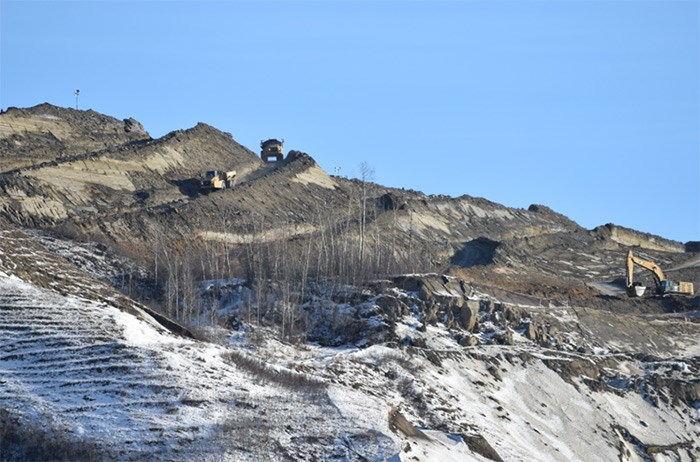 Tension cracks that developed on the banks of the Peace River are among the causes of delays that now threaten to increase Site C’s costs by $610 million.
Tension cracks that developed on the banks of the Peace River are among the causes of delays that now threaten to increase Site C’s costs by $610 million.
It’s a lesson that BC Hydro is learning the hard way on the construction of Site C dam: the lowest bid may not necessarily always be the best one.
When it awarded the main civil works contract for the Site C dam to a consortium called Peace River Hydro Partners (PRHP) for $1.75 billion, it was the lowest of four bids.
According to documents released to Business in Â鶹´«Ă˝Ół»through a freedom of information request earlier this year, the other three bids came in at $1.86 billion, $2.13 billion and $2.42 billion.
According to an unredacted Deloitte report that was posted by the BC Utilities Commission (BCUC) then removed – but not before copies made it into the hands of Business in Â鶹´«Ă˝Ół»and other media – the PRHP consortium has requested $327 million in additional funding from contingency to cover delays and overruns.
BC Hydro has yet to approve all of the additional funding claims. If it does, it would mean that the higher bids that were rejected are starting to look like a more accurate price to get the work done.
Last week, BC Hydro confirmed that a critical river diversion will be delayed, adding $610 million to the project’s costs.
The consortium with the highest technical ranking bid $2.13 billion – $380 million higher than PRHP’s bid. PRHP had the second-best technical ranking, but the lowest bid.
“PRHP may have significantly underbid the project, by $285 million to $340 million,” the unredacted Deloitte report states.
“This may explain the claims that PRHP has submitted to the project to date to recuperate some of its losses. Deloitte believes that PRHP may continue this trend as long as it cannot recover its losses.”
“Clearly, the evidence is there’s a massive claim from the partners to BC Hydro,” said Robert McCullough, a consultant hired by the Peace Valley Landowner Association, which wants the dam project halted. “They’ve underbid. That’s the definition of underbid.”
PRHP declined to comment on some of the concerns being raised about the main civil works contract.
BC Hydro’s base budget for Site C was set at $8.3 billion. But it built in both financial and calendar contingencies that give it some cushioning.
It initially set the project’s contingency funding at $795 million. There is also a $440 million project reserve, held by the Treasury Board, to cover costs outside of BC Hydro’s control.
BC Hydro managed to find cost savings to boost its contingency to more than $1 billion. When the project reserve and contingency funding are combined, it gives the Site C project a total cushion of $1.6 billion.
BC Hydro and contractors may find further cost and calendar savings that will make up for costly delays and allow the project to come in on budget. But if the first two years of construction are any indication, that may be a serious challenge.
As the Deloitte report points out, only 23% of uncommitted contingency for the main civil works contract remains, “which is a concern considering that PRHP has only completed two years of the scheduled eight years on the project, and has both submitted claims and suggested that more claims are to come.”
Moreover, there are still other major contracts yet to be awarded that could also require draws from contingency.
The capital spending for the generating station and spillway, for example, has been estimated at $1.25 billion, according to the unredacted Deloitte report.
“The project has committed 45% of its FID [final investment decision] budget to date, mostly on [main civil works], which reduces our confidence in the accuracy of the other main contract packages that have yet to be awarded.
“Should these unawarded contracts require similarly large commitments, as has [main civil works], the contingency budget would be at risk of overruns.”
The trend is worrisome, according to the BCUC’s preliminary report.
“The panel is concerned that the $356 million contingency that has been allocated and committed to date represents 45% of the planned $795-million contingency, two years into an eight-year project,” the BCUC wrote.
The BCUC is currently holding public hearings to get feedback on its preliminary report. It must publish a final report by November 1.
Even if the project comes in over budget, a number of energy and public policy analysts and experts have argued that cancelling Site C now and acquiring power from other sources to meet future peak demand would be a waste of $3 billion, which would be the sunk costs, plus cost of remediation.


